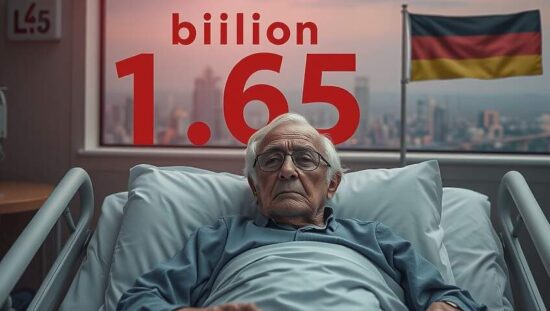Germany’s Health Minister Promises Swift Action to Stabilize Nursing Care Insurance
Germany’s Health Minister, Nina Warken, has pledged swift action from the federal government to stabilize the country’s nursing care insurance, which is facing a financial crisis. In an interview with the Rheinische Post, Warken emphasized the need for both short-term and long-term reforms to ensure the sustainability of the system.
The Minister stressed that the government must act quickly to prevent the nursing care insurance from falling into the red, but also acknowledged the need for lasting reforms. “We need to ensure that the nursing care insurance gets back into the black and for that, we will react quickly” Warken said. “But we also need long-term reforms. Just patching up the problem once won’t help” she added.
The Patient Protection Foundation, a non-profit organization, has called for the government to take more decisive action. Eugen Brysch, the foundation’s chairman, criticized the government for lacking the necessary momentum to address the challenges facing the nursing care insurance. “The government is failing to take the necessary steps to ensure a worthy and sustainable care system for the elderly” Brysch said.
The German Association of Statutory Health Insurance (GKV-Spitzenverband) has also called for immediate measures to stabilize the nursing care insurance. Doris Pfeiffer, the association’s chairwoman, emphasized the need for a fundamental reform of the system to adjust income and expenditure. “Without a fundamental reform, it won’t work” Pfeiffer said. “We need to take immediate measures to stabilize the system and that includes the repayment of the 5.3 billion euros in Corona debt still owed by the federal government to the nursing care insurance.”
The DAK, a major health insurance provider, has predicted a deficit of 1.65 billion euros for the nursing care insurance this year, rising to 3.5 billion euros in the following year, with a potential increase in contributions of 0.3 percentage points.





